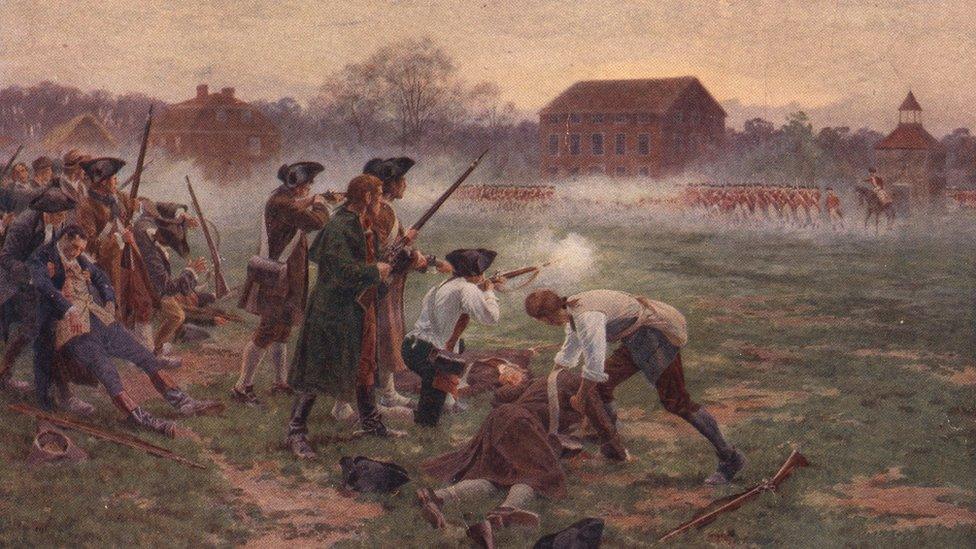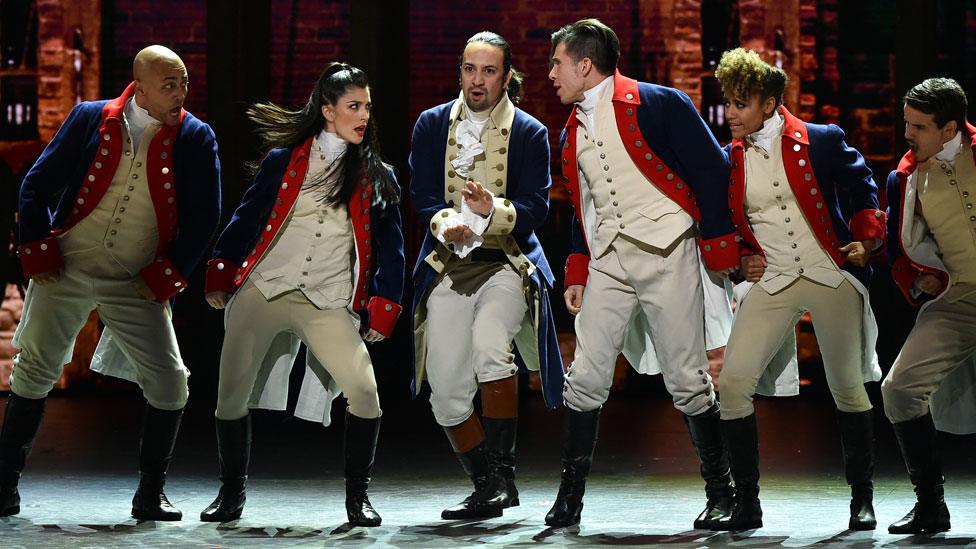Council withdraws Hercules Mulligan plaque proposal over slavery link
- Published

European settlers rebelled against rule from Britain in 1775
A motion to honour a Coleraine man regarded as a revolutionary figure in the United States has been withdrawn over his links to slavery.
Hercules Mulligan was born on 15 September 1740.
He is said to have saved US President George Washington's life on two occasions.
Alliance councillor Yvonne Boyle, who brought the original motion, called for it to be withdrawn ahead of Tuesday's full council meeting.
It comes two weeks after members of Causeway Coast and Glens leisure and development committee voted in favour of an amended motion to honour Hercules Mulligan.
Ms Boyle had originally proposed erecting a blue plaque or some form of memorial to honour Hercules Mulligan, while an amendment by UUP Councillor Richard Holmes called for the local authority to recognise him through future heritage trails.
A majority of councillors voted in favour of Mr Holmes' amendment.
In a letter, sent to Causeway Coast and Glens Borough Council and endorsed by 18 community groups, including the North West Migrants Forum and Belfast Multicultural Association, the move to honour him was "strongly condemned".
'A messy business'
Ms Boyle said that history was "a messy business" and the proposal had originally been brought forward "in good faith".
"Further details of his slave owning have emerged subsequently which were not in the public domain at the time. I have met with various groups since then and explained that in person," she said.
She added it was "important history is acknowledged and not ignored" and Northern Ireland's links to slavery needed to be recognised in "how these effect respect for our diverse population in the present day".
Following the withdrawal of the motion, Mr Holmes said he thought it was "the sort of thing that should be in a museum where you can tell both sides".
Who was Hercules Mulligan?
While his contribution to history had become largely unknown, the hit Broadway musical Hamilton sparked a renewed interest in the Hercules Mulligan's story.
Seen as an influential mentor to US founding father Alexander Hamilton, Mulligan worked as a spy against the British.

The hit musical Hamilton has given rise to renewed interest in the era
A founder of the New York Manumission Society, an early organisation to promote the abolition of slavery, Mulligan worked as a tailor until retirement at the age of 80.
However, it has also been recorded that Mulligan was a slave owner.
Cato, a slave owned by Mulligan, was known to have gathered intelligence and spied on the British on behalf of the revolutionaries during the American War of Independence.
Mulligan died in 1825 and is buried, close to Alexander Hamilton, in Manhattan's Trinity Churchyard.
Related topics
- Published19 February 2021
